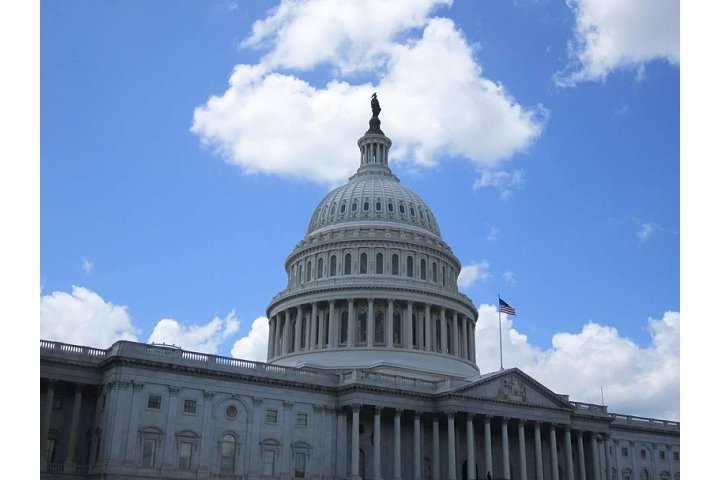
The 2016 presidential race, once again, is so far full more of sideshows than serious debates on policy. Never mind that the next president will have a huge impact on the Supreme Court, needs to figure out how to bolster a declining middle class and will have a wide array of foreign policy headaches, from ISIL to Putin to an increasingly fragmented Europe. Serious decisions on climate change will also have to be made, whether or not oil stays at $50 a barrel or if the COP21 talks in Paris later this year are a success.
So despite the rhetoric from the likes of Ted Cruz, Jeb Bush, Hillary Clinton and Bernie Sanders, and no matter where your opinions lie, expect climate change and energy policy to add to the silly season rather than engender serious, thoughtful ideas. And while we naturally expect the Democrats to be “for it,” and the Republicans “against it,” a recent poll conducted jointly by Echelon Insights, North Star Opinion Research and Public Opinion Strategies will raise some eyebrows with the critical Iowa caucuses only four months away.
According to this poll, conducted late last month, a vast majority of Republicans are open to new forms of energy in order to reduce the country’s dependence on imported fossil fuels. And many of these questions asked in the poll received a majority or at a minimum, surprisingly strong agreement among those described as conservative Republicans. So has the ice melted? Have the Republicans, who generations ago were the “progressive” environmental party that broke up the oil business trusts while establishing the National Park Service (Teddy Roosevelt), funded science programs (Dwight Eisenhower) and established the Environmental Protection Agency (Richard Nixon) . . . ready to turn the corner?
“Many Conservative Republicans Believe Climate Change Is a Real Threat,” blared a headline earlier this week in the New York Times. Well, not exactly. 54 percent do agree that mankind has some kind of role with the world’s changing climate, and an overwhelming majority agree that the U.S. needs to accelerate the deployment of clean energy. No question used the word, "threat," however: after all, such rhetoric would have sabotaged the results for which the poll’s supporters had hoped.
As with most polls, the devil in the details is how the questions are asked. The pollsters were savvy enough to use the term “clean energy,” not “green,” “alternative” or even “renewable.” Hypothetical scenarios, such as pollsters asking whether one would support a candidate who would expand clean energy development to reduce foreign oil imports, cut air pollution and improve public health versus one who discussed the EPA or need for clean energy subsidies, were among the questions. That former imaginary candidate, of course, won by a landslide, and that was true for all groups of respondents, across the political spectrum.
The poll was funded by Jim Faison, a North Carolina businessman who helped establish ClearPath, an advocacy group that aims to accelerate America’s clean energy future with conservative solutions. The group is working to raise $175 million to lobby the Republican party to shift its stubborn position on climate change. ClearPath’s site showcases many facts that demonstrate Republican politicians have taken decisive action on environmental issues--including laws passed during the George H. W. Bush administration that slashed “acid rain” during the 1980s and 1990s by the implementation of market-based solutions.
So will Faison’s and ClearPath’s agenda change hearts and minds? The amount of money they are raising is impressive, but that sum is a child’s piggy bank compared to the funds, and power, the Koch Brothers have over the Republican party. Pundits also point to what is going on with the Republicans in the wake of Jim Boehner’s resignation as Speaker of the House, as it is clear that the Tea Party is calling the shots within the party. But anything can happen in American politics: after all, some Tea Partiers are aligning with organizations such as the Sierra Club to make the installation of residential solar power easier and less bureaucratic. But compromise is integral to political success, and the lack of it in Congress most likely means inertia on climate change is the most realistic prediction. Image credit: Leon Kaye

Leon Kaye has written for 3p since 2010 and become executive editor in 2018. His previous work includes writing for the Guardian as well as other online and print publications. In addition, he's worked in sales executive roles within technology and financial research companies, as well as for a public relations firm, for which he consulted with one of the globe’s leading sustainability initiatives. Currently living in Central California, he’s traveled to 70-plus countries and has lived and worked in South Korea, the United Arab Emirates and Uruguay.
Leon’s an alum of Fresno State, the University of Maryland, Baltimore County and the University of Southern California's Marshall Business School. He enjoys traveling abroad as well as exploring California’s Central Coast and the Sierra Nevadas.














